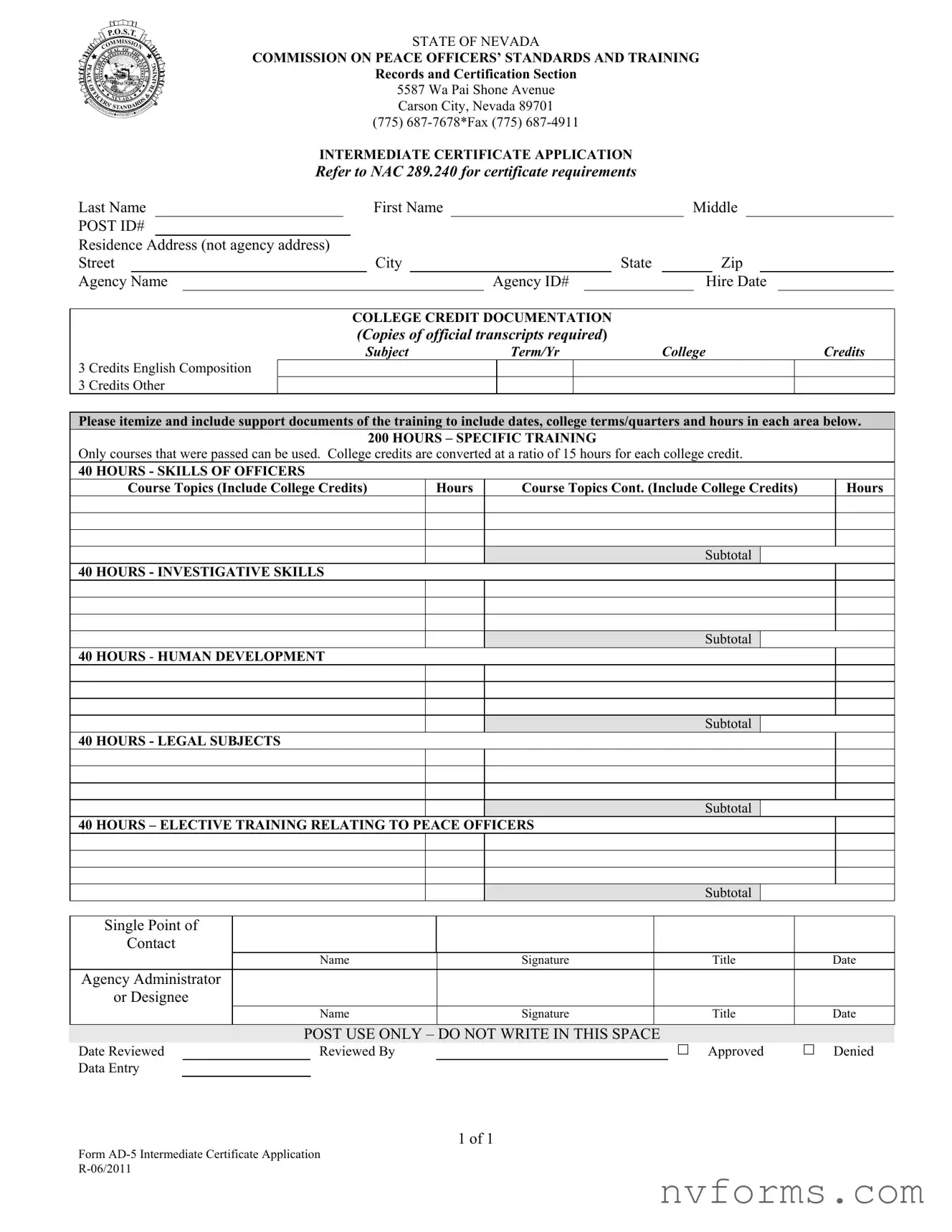Fill Out a Valid Ad 5 Nevada Template
The Ad 5 Nevada form is a critical document for peace officers in Nevada, laying out the requirements for obtaining an Intermediate Certificate. This form, managed by the State of Nevada Commission on Peace Officers’ Standards and Training, requires details on the applicant's personal information, education, and specially tailored training courses. It serves as a comprehensive application that evaluates an officer’s readiness for an intermediate level of service, based on their training and academic achievements.
Launch Editor

Fill Out a Valid Ad 5 Nevada Template
Launch Editor

Launch Editor
or
⇩ Ad 5 Nevada File
Don’t stop now — finish the form
Finish Ad 5 Nevada online using an easy step-by-step flow.
